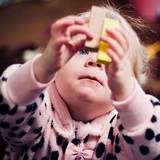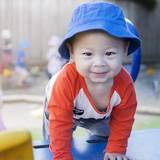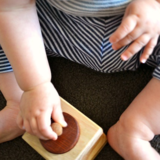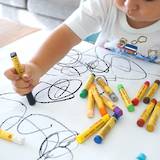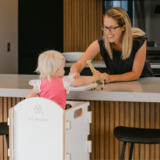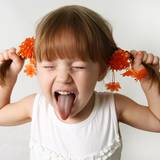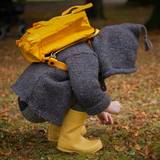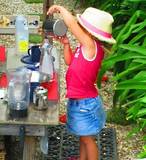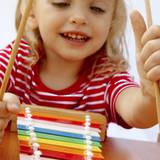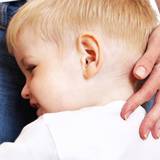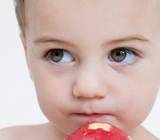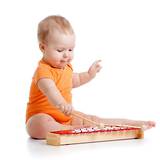Child Development
Take a look at our wide range of articles relating to child development from learning and play, to social and emotional development and communication skills
Check back regularly for our latest updates for babies, toddlers and pre-school kids.
Check back regularly for our latest updates for babies, toddlers and pre-school kids.
Music, movement and nutrition. What is the link?
The link between music, movement and nutrition has been shown to impact children’s brain health and functioning. Dr Tessa Grigg explores this link and how these simple things can help to nurture your baby’s or child’s brain.
Growing resilience in your child
Nurturing resilience in young children can help turn a lifetime of key problem solving into positive, confident decisions that build full, positive lives. Children with resilience become brave and curious, trusting that they can do things and are able to push themselves out of their comfort zones to reach their life goals. So, what can we do to help nurture their resilience?
Developing the pincer grip
Find out why the pincer grip is important developmental milestone and how you can help your baby or toddler develop this essential fine motor skill from as young as 12 months old.
The importance of drawing
It may look like just a whole lot of scribbles to you, but drawing is an important part of your children's development. Find out about the importance of drawing for young children and the many benefits it offers.
Do you have a gifted child?
So how do you know if you have a gifted child? We take a look at some of the characteristics of gifted children, the meaning of giftedness, whether we should recognise gifted children and what to do if you feel you child is gifted.
5 Baby sleep myths uncovered
Everyone has an opinion when it comes to baby sleep, and sometimes it’s hard to establish myth from reality. With access to unlimited information via the internet, from coffee groups, friends and family, it’s inevitable that you’ll get a lot of conflicting advice. Here are some tips to help you dispel common myths around babies sleep habits.
How learning towers can help toddlers brain development
Learning towers are great for boosting your toddler so they can stand up and interact safely at bench height, whether it’s ‘helping’ with dinner, baking or doing arts and crafts alongside you. However, the potential of learning towers extends far beyond the kitchen. They also have a positive effect on your toddler’s brain development.
Understanding disruptive behaviour
What constitutes ‘disruptive’ behaviour in young kids is very subjective. However, by looking deeper at your child’s behaviour it will help you understand more about why they act in a certain way. Behaviour that can appear ‘naughty’ or ‘disruptive’ to you, is often just your child’s way of communicating an unmet need as they try to figure out their way in the world.
The fourth trimester
The term fourth trimester is often used to describe the first 3 months of your baby’s life. A time of enormous transition that your baby must make from being inside the womb to exiting into the big wide world. Find out about the fourth trimester, what you can expect and how to cope and navigate your way through those first few monhts.
4 Newborn baby sleep secrets
Is your newborn baby having sleeping problems? These newborn sleep secrets will help encourage better sleep during the newborn stage. From how long they should stay awake to starting a bed time routine, differentiating between night and day and letting them self settle.
How to transition from 2 naps to 1
Anywhere between the ages of 12 months and 18 months your toddler will be ready to transition from two naps to one nap each day. But how do you know when they’re ready to drop a nap? And if so, what then?
Using natural resources for learning
Over the years as our living space has decreased and our use of smart phones, tablets and television has increased, children are now often missing out on connections to nature. In our hectic world, children need experiences that were such a big part of their parents’ childhood. Check out these natural resource activities to try with your little ones.
Early brain development & learning
Early childhood experiences impact and determine how the brain develops. Find out how we can help to stimulate our children’s early brain development and learning, and help them reach their full potential.
The benefits of preschool music lessons
The benefits of preschool music lessons go way beyond the classroom. Preschool music lessons not only help to support kids language growth and motor skills development, but they also help to improve their memory and internalise rhythm. We take a look at the positive effects of music on children’s brain development, the importance of rhythm and the physical benefits of music too.
Why it’s ok for kids to be bored
Try stepping back when your kids complain about feeling bored. This will empower them to think for themselves and learn to be resilient. It will also encourage them to find their own way out of the boredom, and the problem-solving process helps them feel good about themselves.
Managing separation anxiety in babies 6 months plus
Separation anxiety is a normal phase of a child’s emotional development. Your normally placid and charming baby starts to become clingy and tearful, often from 6-10 months onwards. Find out more about separation anxiety and some practical ways to help your little one through this phase.
Toddler regression
Does your toddler experience regression from time to time and start acting younger than their age? It’s not uncommon for toddlers and young children to experience some sort of regression in their early years. We take a look at some of the causes of regression and what you can do to help.
Managing the witching hour
The witching hour can start without warning and is often longer than an hour! The calm, quiet baby or toddler you once had turns into a crying inconsolable child in no time at all, usually around the same time every day. So what can you do?
Tips on improving your kids listening skills
Do you sometimes struggle to get your kids to listen and pay attention to what you’re saying? Do you often feel frustrated or resort to raising your voice? Here are 4 quick ways you can encourage your kids to listen to you and help you restore your sanity!
Why do preschoolers lie?
Children can start lying as young as two years old. We might not like it when our kids lie to us, but believe it or not, lying in the early years is a normal part of your preschoolers development involving independence, emotional regulation and putting things into perspective. Find out more about their reasons for lying, dealing with their lies, setting an example and continued lying.
Helping young kids to manage their anger
Many things can cause young kids to become mad and start to scream and shout. However it’s important as parents and caregivers to teach toddlers and preschoolers how to manage their anger so that it doesn’t become self-destructive.
The problems with bribes & rewards
Are you guilty of bribing your kids or over-rewarding them? We take a look at the difference between bribes and rewards, the long term effects of both and instilling positive values.
Kids who interrupt
Does your child often interrupt you? When you’re talking to someone else, on the phone or in the middle of something, it can be frustrating when your child constantly interrupts. Teaching them how to determine if something warrants an interruption and how to pay more attention to other people's needs as well as their own will help control the interruptions.
Benefits of music for young kids
Much research has been carried out over the years on the importance of exposing young children to music. We look at some of the benefits and give you some suggestions for making music at home.

